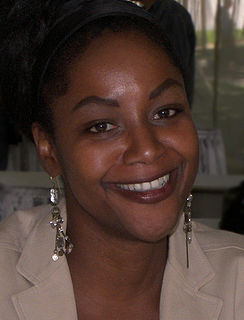A Quote by George Herbert
If we can possibly avoid wrecking this little planet of ours, we will, But-there must be risks! There must be. In experimental work there always are!
Related Quotes
Here was the rub: one must be more zealous to please God than to avoid sin. One must sacrifice oneself utterly to God's purposes, even to the point of possibly making moral mistakes. One's obedience to God must be forward-oriented and zealous and free, and to be a mere moralist or pietist would make such a life impossible.
Well, as a short-story writer, I don't think there are any weaknesses to the genre itself. I guess I would say that the difficulty of the form is that one must create an entire world in five to 30 pages, as opposed to 300. There is very little room for fat - you must be economical. And you must begin as close to the end as you possibly can.
I love to read and teach experimental fiction but yes, neither this work nor my first novel is really that experimental. It uses some experimental techniques but in the end, I would not say that it is experimental. I'm not sure why. I do a lot of writing on my own, and I have always just written this way.
To love at all is to be vulnerable. Love anything and your heart will be wrung and possibly broken. If you want to make sure of keeping it intact you must give it to no one, not even an animal. Wrap it carefully round with hobbies and little luxuries; avoid all entanglements. Lock it up safe in the casket or coffin of your selfishness. But in that casket, safe, dark, motionless, airless, it will change. It will not be broken; it will become unbreakable, impenetrable, irredeemable. To love is to be vulnerable.
There are a whole other range of sciences that must deal with the narrative reconstruction of the inordinately complex events of history that can occur but once in their detailed glory. And for those kinds of sciences, be it cosmology, or evolutionary biology, or geology, or palaeontology, the experimental methods, simplification, quantification, prediction and repetition of the experimental sciences don't always work. You have to go with the narrative, the descriptive methods of what? Of historians.
But risks must be taken because the greatest hazard in life is to risk nothing. The person who risks nothing, does nothing, has nothing, is nothing. He may avoid suffering and sorrow, but he cannot learn, feel, change, grow or live. Chained by his servitude he is a slave who has forfeited all freedom. Only a person who risks is free. The pessimist complains about the wind; the optimist expects it to change; and the realist adjusts the sails







































